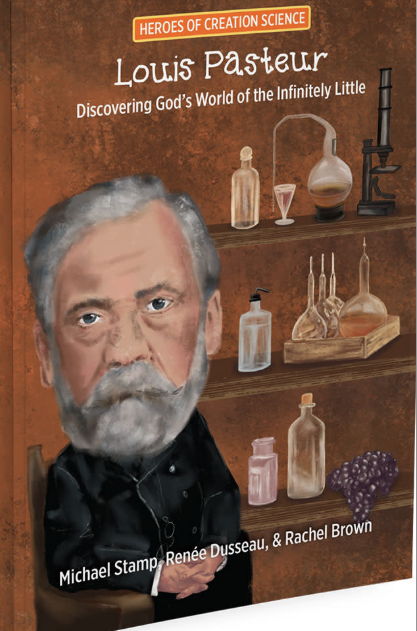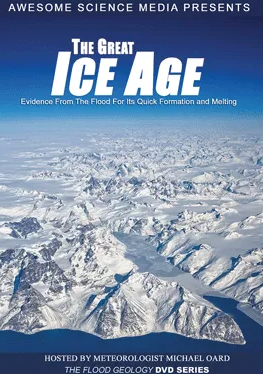Articles » Intermediate
Of the five senses which keep us in touch with the world, most of us are particularly aware of eyesight and hearing. Of course we are very thankful for these gifts. One sense that we tend to take for granted however, is the sense of smell. This sense does not seem very complicated or amazing. Nevertheless a little research reveals that our sense of smell is not only exquisitely designed, but it is also poorly understood by biologists. Of all our senses, that of smell seems to be the most complicated. Read the rest of this entry »
In the American southwest, some particularly unique and dramatic landscapes have been preserved in the national parks. No one can fail to be impressed by the steep V-shaped gorge and the diagonal patterning (between horizontal erosion surfaces) which characterizes the rocks of Zion National Park in Utah. Similar sandstone rocks extend over a seven-state area, but they are not all called by the same name. In various parts of their range, these rocks are known either as Navajo, or Aztec, or Nugget Sandstone. Read the rest of this entry »
One might suppose, judging by this title, that the beaches in Canada’s maritime provinces are not happy places to visit. Actually they are beautiful. Nevertheless, the story of these landscapes provides remarkable food for thought. Read the rest of this entry »
This is not exactly recent news, but the one hundredth birthday of evolutionist Ernst Mayr draws renewed attention to it. Within the past thirty years, the standard view of evolution theory has been shown to be woefully inadequate. Read the rest of this entry »
Recently American biologists tried to have a colleague fired from his job: a dual appointment to the National Institute of Health and the Smithsonian Institution. These mainstream scientists were extremely annoyed, on philosophical grounds, with Dr. Richard Sternberg. Read the rest of this entry »
In Nova Scotia, as elsewhere in the Maritimes, we discover that fossils are an exciting part of the landscape. Not the least of our discoveries are the dinosaurs of Parrsboro. Dinosaurs?? We thought western Canada had exclusive claim to such Canadian artifacts. Not quite. West of Truro, along the north shore of the Minas Basin, we find the touristy town of Parrsboro. The scenery is beautiful, with blueberry crops growing on local hummocky hills. Furthermore the beaches along this stretch of coast are famous for fossils, dinosaur fossils to be specific. Read the rest of this entry »
One of the great strengths of the intelligent design community, is the large variety of people from diverse scientific disciplines, who contribute to the discussion. With many minds and original approaches, the arguments are honed, and honed again. Everybody wins. In similar fashion, the appearance of a new creation based book with original arguments gives us occasion not only to cheer – but also to pay attention to its contents. Read the rest of this entry »
Among living creatures, it does not take a specialist to realize that jellyfish are not dainty delights of the deep. Although they may be beautiful in appearance, jellyfish are successful predators. Read the rest of this entry »
Not everyone appreciates desert landscapes, however most people will admit, when pressed, that there is an awesome grandeur to some dry lands. The scablands in the northeast section of the State of Washington, are a case in point. Does one like drama? Does one appreciate deserts? The State of Washington has it all. Read the rest of this entry »
There is nothing like problem solving to keep one mentally alert. Some people might say that the study of nature is a form of problem solving and so it is. Collecting information is only half the battle. The real challenge is to try to explain the data. Read the rest of this entry »
Scientists are continually discovering remarkable molecular machines which work inside each living cell. One such machine involves proofreading. Anytime you or I copy a document, it is always a good idea to proofread the script. Since each cell copies or duplicates its own genetic code or DNA before cell division, the cell would be well advised to check the new strands to make sure there are no copying errors. Read the rest of this entry »
Intelligent design, and indirectly the creation model, have been in the news a lot lately. Not surprisingly, most of the articles have been sympathetic, not to intelligent design, but to Darwinian evolution, the mechanistic explanation for life so favoured by the majority of scientists. Read the rest of this entry »
As far as our solar system is concerned, astronomers have grown accustomed to expecting the unexpected. Certainly nobody expected liquid water spewing from a small moon of Saturn. Read the rest of this entry »
Since the advent of global positioning satellites, or at least since their availability to civilians, scientists have found many uses for these devices. One of the more interesting applications is to track animals, as in the “fish with chips” program. This is a multimillion dollar Census of Marine Life project. In conjunction with this program, thousands of marine animals in the Pacific Ocean, including many fish, have been fitted with electronic surveillance tags. Read the rest of this entry »
Have you ever tried to imagine what a world without grasses would look like? The scenery might well be pretty bleak. Scientists have long declared that there were no grasses present in dinosaur communities. The plant-eating dinosaurs had to make do, we have been assured, with cycads, ferns, horsetails and trees of flowering plants such as palms and magnolias. Read the rest of this entry »







